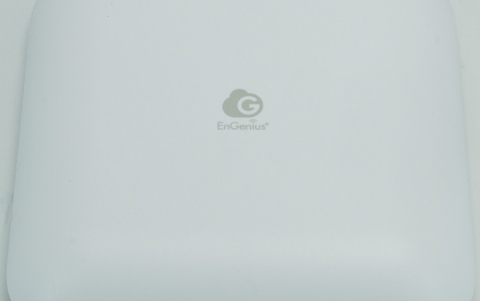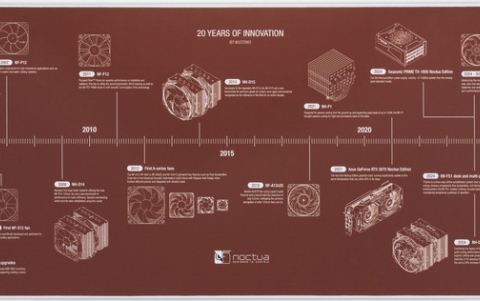Toshiba HG6 256GB SSD review
6. AS SSD
We move on with the AS SSD benchmark, which contains five synthetic as well as three practical tests. The synthetic tests determine the sequential and the random read / write performance of an SSD. These tests are carried out without using the operating system's cache. The Seq-test measures how long it takes to read and write an 1GB file. Most importantly, this sequential benchmark uses incompressible data for all of its transfers.
The 4K benchmark tests the read and write performance for random 4K blocks. The 4K-64-THRD-test corresponds to the 4K procedure except that here the read and write operations are distributed on 64 threads:
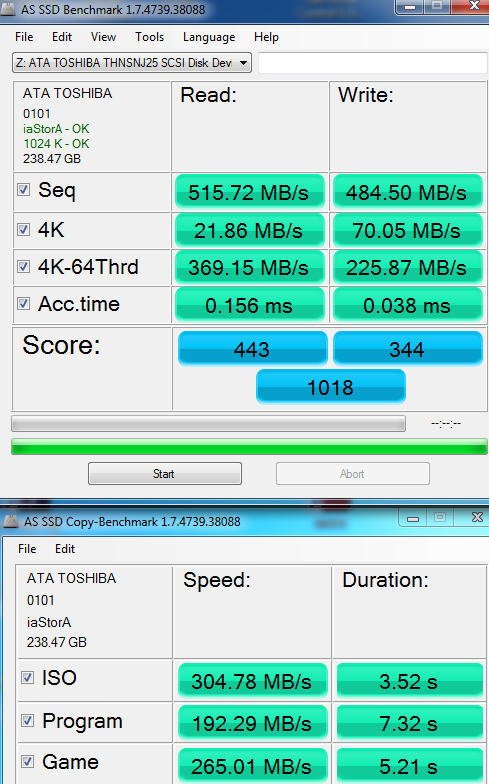
The HG6''s performance in sequential reading with incompressible test was high at 515.72 MB/sl. Its sequential writing performance was impressive at 484.7 MB/s (average). Toshiba has made a great job with the firmware of the drive, offering a performance consistency with all kinds of data:
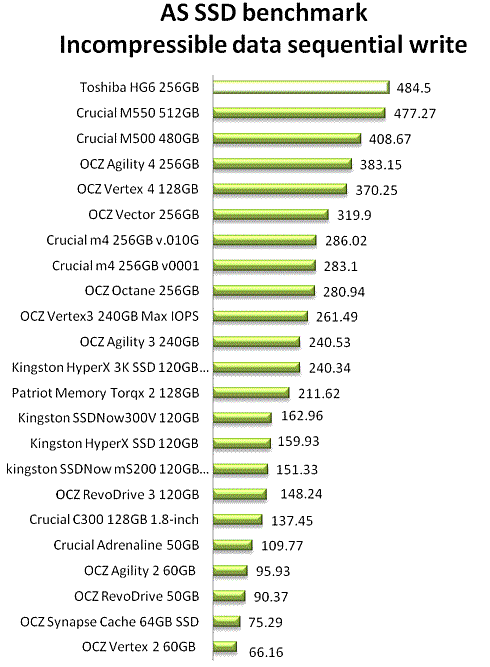
At the 4K random reading tests, theHG6 is positioned somewhere in the middle of the chart, with an average reading speed of 21.86 MB/s.
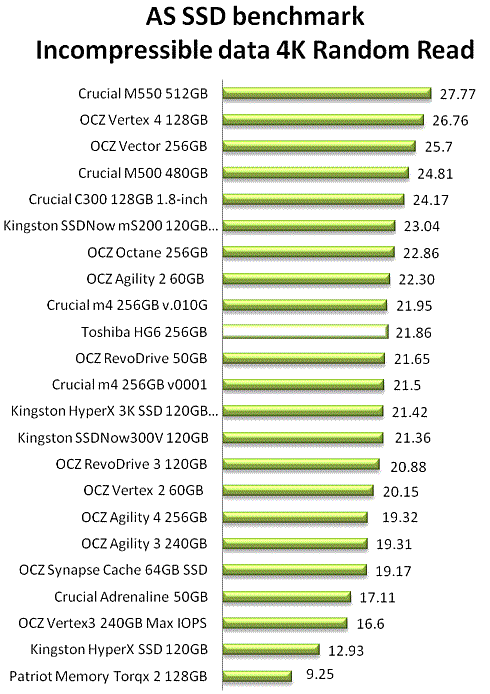
The drive also performed averagely in the 4K random writing tests with 70.05 MB/s:

Multi-threaded requests for random reading of 4K incompressible files were easy to handle for Toshiba SSD, offering a great 369.15 MB/s performance. In the corresponding writing test, the drive returned a decent 225.87 MB/s:

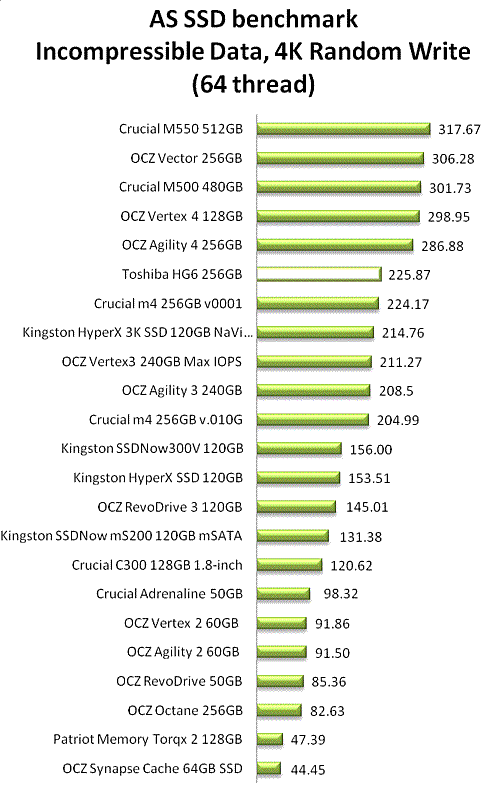
In the following graph you see how the HG6 256GB drive reads and writes files, which have been partially of fully compressed. It is obvious that the both reading and writing speeds do not depend on level of file compression:













